A startup or start-up is a company or project undertaken by an entrepreneur to seek, develop, and validate a scalable business model. While entrepreneurship refers to all new businesses, including self-employment and businesses that never intend to become registered, startups refer to new businesses that intend to grow large beyond the solo founder. At the beginning, startups face high uncertainty and have high rates of failure, but a minority of them do go on to be successful and influential.
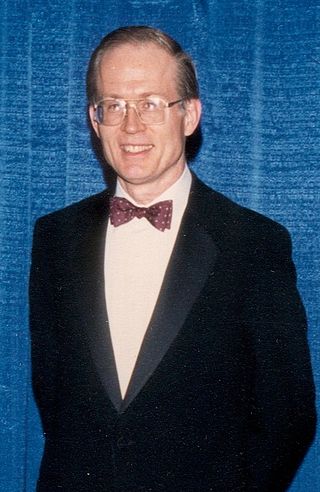
Fischer Sheffey Black was an American economist, best known as one of the authors of the Black–Scholes equation.

Self-help or self-improvement is a self-guided improvement—economically, intellectually, or emotionally—often with a substantial psychological basis.
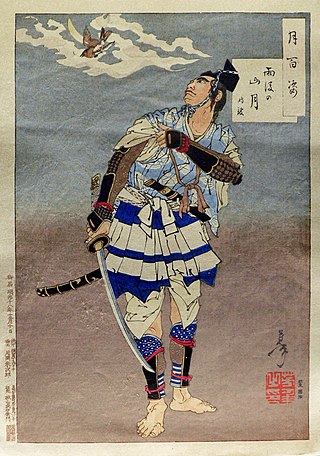
Discipline refers to rule following behavior, to regulation, order, control and authority. It may also refer to punishment. Discipline is used to create habits, routines, and automatic mechanisms such as blind obedience. It may be inflicted on others or on oneself. Self discipline refers to the practice of self restraint, controlling one's emotions, and ignoring impulses.
Business performance management (BPM), also known as corporate performance management (CPM) and enterprise performance management (EPM),) is a set of performance management and analytic processes that enables the management of an organization's performance to achieve one or more pre-selected goals. Gartner retired the concept of "CPM" and reclassified it as "financial planning and analysis (FP&A)," and "financial close" to reflect two concepts: increased focus on planning and the emergence of a new category of solutions supporting the management of the financial close.
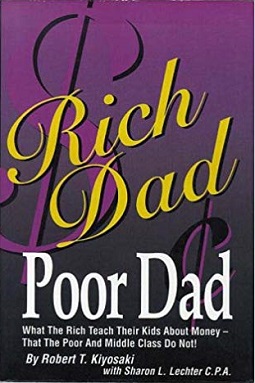
Rich Dad Poor Dad is a 1997 book written by Robert T. Kiyosaki and Sharon Lechter. It advocates the importance of financial literacy, financial independence and building wealth through investing in assets, real estate investing, starting and owning businesses, as well as increasing one's financial intelligence.
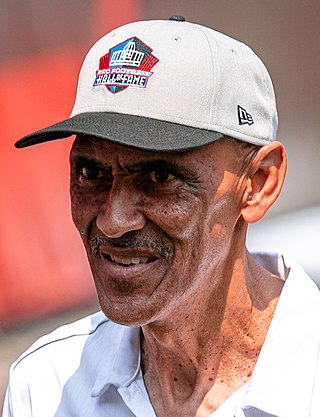
Anthony Kevin Dungy is an American former football safety and coach who served as a head coach in the National Football League (NFL) for 13 seasons with the Tampa Bay Buccaneers and Indianapolis Colts. Dungy's teams became perennial postseason contenders under his leadership, missing the playoffs only twice with Tampa Bay. He led the Colts to victory in Super Bowl XLI over the Chicago Bears, making him the first African-American head coach to win the Super Bowl.
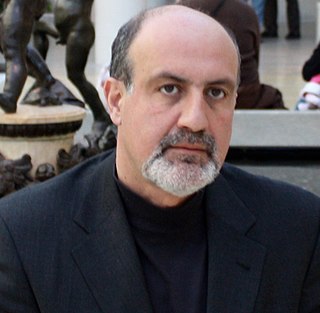
Nassim Nicholas Taleb is a Lebanese-American essayist, mathematical statistician, former option trader, risk analyst, and aphorist whose work concerns problems of randomness, probability, and uncertainty. The Sunday Times called his 2007 book The Black Swan one of the 12 most influential books since World War II.
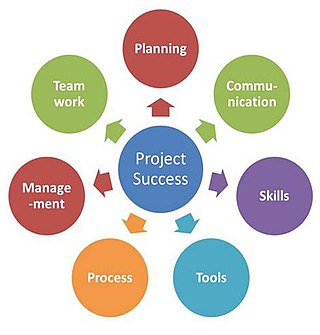
Critical success factor (CSF) is a management term for an element that is necessary for an organization or project to achieve its mission. To achieve their goals they need to be aware of each key success factor (KSF) and the variations between the keys and the different roles key result area (KRA).
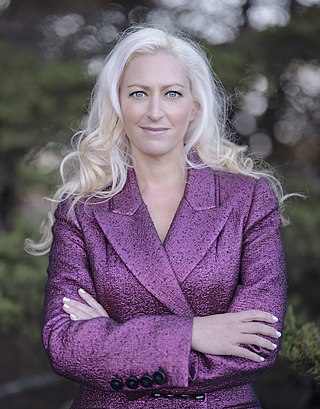
Jane McGonigal is an American author, game designer, and researcher. McGonigal advocates using mobile and digital technology to channel positive attitudes and collaboration in a real-world context.

Built to Last: Successful Habits of Visionary Companies is a book written by Jim Collins and Jerry I. Porras.
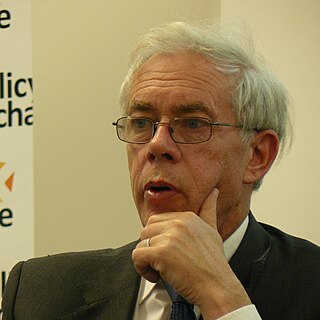
Sir John Anderson Kay, is a British economist. He was the first dean of Oxford’s Said Business School and has held chairs at the London School of Economics, the University of Oxford, and London Business School. He has been a fellow of St John's College, Oxford, since 1970.

The Ben Franklin effect is a proposed psychological phenomenon: people like someone more after doing a favour for them. An explanation for this is cognitive dissonance. People reason that they help others because they like them, even if they do not, because their minds struggle to maintain logical consistency between their actions and perceptions.

A goal is an idea of the future or desired result that a person or a group of people envision, plan and commit to achieve. People endeavour to reach goals within a finite time by setting deadlines.

Edwin A. Locke is an American psychologist and a pioneer in goal-setting theory. He is a retired Dean's Professor of Motivation and Leadership at the Robert H. Smith School of Business at the University of Maryland, College Park. He was also affiliated with the Department of Psychology. As stated by the Association for Psychological Science, "Locke is the most published organizational psychologist in the history of the field. His pioneering research has advanced and enriched our understanding of work motivation and job satisfaction. The theory that is synonymous with his name—goal-setting theory—is perhaps the most widely-respected theory in industrial-organizational psychology. His 1976 chapter on job satisfaction continues to be one of the most highly-cited pieces of work in the field."

Susan Pinker is a psychologist, author and social science columnist for The Wall Street Journal. She is a former weekly columnist for The Globe and Mail, and has also written for The New York Times, The Guardian, and The Times of London. Her first book, The Sexual Paradox, was awarded the William James Book Award in 2010 and was published in 17 countries. Her recent book, The Village Effect was a Canadian bestseller and an Apple 2014 nonfiction best pick. Her work has been featured in The Economist, The Financial Times, and Der Spiegel.

The Buried Life is a reality documentary series on MTV. The series features Duncan Penn, Jonnie Penn, Ben Nemtin, and Dave Lingwood attempting to complete a list of "100 things to do before you die." The pilot episode aired on January 18, 2010, and the show was renewed for a second season in 2010. On October 25, 2011, The Buried Life announced they wouldn't be doing any more episodes of the show. Shortly after their show's cancellation, the creators said they were working on a "new and improved" show for the network based on the premise of the original series. No new details on a new series have since been released.
Objectives and key results is a goal-setting framework used by individuals, teams, and organizations to define measurable goals and track their outcomes. The development of OKR is generally attributed to Andrew Grove who introduced the approach to Intel in the 1970s. John Doerr published an OKR book which is called Measure What Matters: How Google, Bono, and the Gates Foundation Rock the World with OKRs in 2017.

The Obstacle Is the Way: The Timeless Art of Turning Trials into Triumph is the third book by author Ryan Holiday. It was published in 2014. It is a book which offers individuals a framework to flip obstacles into opportunities, an approach crafted by Holiday. It was inspired by the philosophy of stoicism.

Think Big and Kick Ass: In Business and in Life is a non-fiction book by Donald Trump, then head of The Trump Organization and later President of the United States, and Bill Zanker, The Learning Annex entrepreneur, first published in hardcover in 2007 by HarperCollins. Another edition was subsequently published in paperback in 2008 under the title Think Big: Make It Happen in Business and Life. Trump and Zanker had prior business ventures together before writing the book; Zanker's company helped gain Trump speaking engagements around the world with large audiences.

















